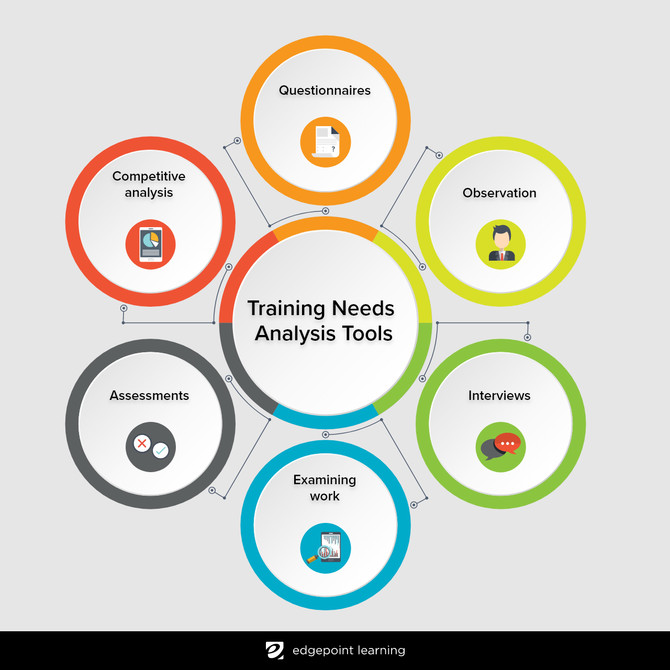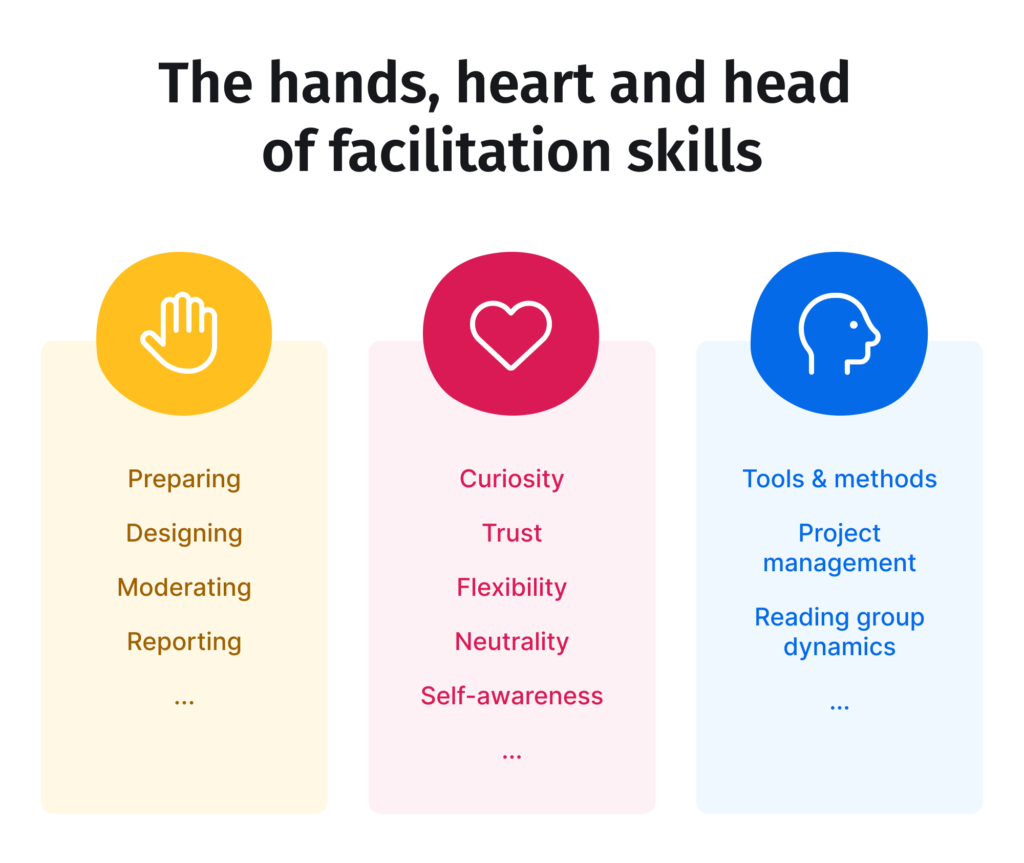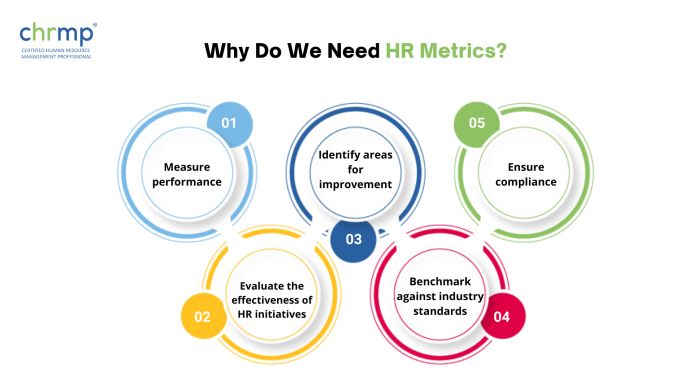AI Conversation
Learning and Development Workshop

Did you know that some learning and development workshops in HR use virtual reality? It lets employees practice real-life scenarios in a fun, immersive way, like being in a video game! It's like leveling up your skills in a super cool virtual world! 🎮🌟
https://www.youtube.com/watch?v=GkPi4ETzn2A
needs assessment

https://www.youtube.com/watch?v=gXLuz_yKDIk
A needs assessment in a learning and development workshop for HR identifies skill gaps and training requirements. It ensures that the training is relevant and effective, aligning with organizational goals. By understanding employees' needs, HR can design targeted programs that boost performance, engagement, and career growth. It's like a superhero mission for skills! 🦸♀️📚
delivery methods

In a learning and development workshop for human resources, delivery methods include interactive activities, role-playing, and group discussions. These methods engage participants, making learning fun and effective. Technology like e-learning platforms and virtual reality can also be used to enhance understanding and retention, ensuring everyone has a blast while learning! 🚀📚
https://www.youtube.com/watch?v=DHJuL7Ipheo
facilitation skills

https://www.youtube.com/watch?v=So8aseCO3hY
Facilitation skills in HR learning workshops involve guiding discussions, encouraging participation, and fostering a collaborative environment. Facilitators use active listening, questioning techniques, and conflict resolution to enhance learning. They create engaging activities to ensure everyone understands and retains information, making the workshop both educational and fun for all participants! 🎉📚
feedback mechanisms

Feedback mechanisms in HR learning workshops help improve skills by providing constructive insights. They create a loop where participants receive, reflect, and act on feedback, fostering growth. This dynamic process encourages continuous improvement, boosts confidence, and enhances performance, making learning more effective and engaging for everyone involved. 🎉📚
https://www.youtube.com/watch?v=B7wn3q7mU9c
training design
https://www.youtube.com/watch?v=ps09Fv_BCrw
Training design in HR workshops focuses on creating engaging, effective learning experiences. It involves identifying goals, understanding learner needs, and developing interactive content. By incorporating diverse methods like games, role-playing, and multimedia, it ensures participants gain valuable skills and knowledge, making learning fun and impactful. 🎉📚

continuous improvement

https://www.youtube.com/watch?v=Wc6bI16xuko
Continuous improvement in a learning and development workshop for HR focuses on constantly enhancing skills and processes. It encourages feedback, innovation, and adaptability, ensuring HR professionals stay updated and effective. By fostering a culture of learning, it boosts employee engagement and performance, making the workplace more dynamic and successful. 🎉📚
evaluation metrics
https://www.youtube.com/watch?v=GbiOaiWWZuU

Evaluation metrics in a learning and development workshop for HR are like report cards for grown-ups! They help measure how effective the training is by checking if employees learned new skills, improved performance, and met goals. These metrics ensure the workshop is fun, useful, and worth the time! 🎓📊
employee engagement
https://www.youtube.com/watch?v=g9HjuA1JF18
Employee engagement in learning and development workshops boosts motivation and productivity. By offering interactive and fun sessions, HR can create a positive environment where employees feel valued and eager to learn. This engagement leads to improved skills, stronger team dynamics, and a happier workplace. Plus, who doesn't love learning with a smile? 😄
AI Report
Essay
### Learning and Development Workshop in Human Resources
In the ever-evolving landscape of business, organizations increasingly recognize the critical importance of employee development as a strategic priority. A Learning and Development (L&D) workshop within the Human Resources (HR) domain serves as a crucial mechanism for enhancing employee skills, increasing job satisfaction, and ultimately driving organizational success. This essay explores the significance of L&D workshops, their impact on employee performance, the role of HR in facilitating these programs, and best practices for implementation.
L&D workshops are designed to equip employees with the skills and knowledge necessary for their current roles and prepare them for future challenges. As noted by Noe (2017), continuous learning opportunities are essential for maintaining a competitive edge in the market. Such workshops can cover a range of topics, from technical skills and industry-specific knowledge to soft skills such as communication and teamwork. By investing in employee training, organizations not only enhance individual capabilities but also contribute to a culture of continuous improvement and innovation.
The impact of L&D workshops on employee performance is well-documented. Research indicates that employees who participate in training programs tend to exhibit higher job performance, increased motivation, and greater job satisfaction (Bakker & Demerouti, 2017). Furthermore, organizations that prioritize employee development are more likely to experience lower turnover rates. This is particularly important in today's job market, where attracting and retaining top talent is a significant challenge for many organizations. By providing L&D opportunities, HR departments can foster a sense of loyalty among employees, encouraging them to stay and grow within the organization.
The role of HR in facilitating effective L&D workshops cannot be overstated. HR professionals are tasked with identifying training needs, designing programs, and evaluating their effectiveness. According to Rothwell and Kazanas (2011), a systematic approach to training is essential for aligning L&D initiatives with organizational goals. HR must collaborate with management and employees to assess skill gaps and determine the most relevant training topics. Additionally, HR should leverage technology and innovative training methods, such as e-learning and blended learning approaches, to enhance accessibility and engagement.
To maximize the effectiveness of L&D workshops, organizations should implement best practices that promote engagement and knowledge retention. These practices include setting clear learning objectives, utilizing interactive training methods, and providing opportunities for practical application of skills (Salas et al., 2012). Furthermore, feedback mechanisms should be established to assess the effectiveness of training programs and make necessary adjustments. By creating a supportive learning environment and encouraging ongoing development, organizations can ensure that their employees are equipped to meet current and future demands.
In conclusion, Learning and Development workshops are an integral component of Human Resources that significantly contribute to employee performance and organizational success. By fostering a culture of continuous learning, HR can enhance employee satisfaction, reduce turnover, and drive overall business performance. As organizations navigate a rapidly changing business landscape, the commitment to employee development through effective L&D initiatives will be crucial for sustaining competitive advantage.
### References
Bakker, A. B., & Demerouti, E. (2017). Job demands-resources theory: Taking stock and looking forward. *Journal of Occupational Health Psychology*, 22(3), 273-285. https://doi.org/10.1037/ocp0000056
Noe, R. A. (2017). *Employee training and development* (7th ed.). McGraw-Hill Education.
Rothwell, W. J., & Kazanas, H. C. (2011). *Planning and managing human resources: Strategic planning for human resource management*. HRD Press.
Salas, E., Tannenbaum, S. I., Kraiger, K., & Smith-Jentsch, K. A. (2012). The science of training and development in organizations: What matters in practice. *Psychological Science in the Public Interest*, 14(2), 74-101. https://doi.org/10.1177/1529100612436661
Lesson Plan
### Lesson Plan: Learning and Development Workshop in Human Resources
#### **Course Title:** Human Resources Management
#### **Grade Level:** Technical Vocational Students
#### **Duration:** 2 hours
#### **Instructor:** [Instructor Name]
#### **Location:** Classroom / Virtual Platform
---
### **Objectives:**
By the end of this lesson, students will be able to:
1. Define learning and development (L&D) within the context of Human Resources.
2. Identify the components and processes of an effective L&D workshop.
3. Explain how L&D workshops are maintained and evaluated for effectiveness.
4. Discuss the importance of continuous learning in the workforce.
---
### **Materials Needed:**
- Projector and screen (for presentations)
- Whiteboard and markers
- Handouts (including key terms, workshop components, and evaluation criteria)
- Case study examples (printed or digital)
- Access to online resources or articles (if applicable)
---
### **Lesson Outline:**
#### **I. Introduction (15 minutes)**
1. **Warm-Up Activity:**
- Ask students to share their prior experiences with training or workshops in any context (school, previous jobs, etc.).
- Discuss the importance of learning and development in personal and professional growth.
2. **Overview of Learning and Development:**
- Define L&D in HR.
- Explain the significance of L&D in enhancing employee skills, performance, and organizational growth.
#### **II. Components of Learning and Development Workshops (30 minutes)**
1. **Key Components:**
- Needs Assessment: Understanding the skills gap and training needs.
- Workshop Design: Objectives, content, format (in-person, online, hybrid), and materials.
- Delivery Methods: Facilitator-led, peer learning, e-learning, etc.
2. **Activity:**
- Group students into small teams and assign each group one component of L&D workshops. Each group will brainstorm and present their understanding of their assigned component.
#### **III. Implementation and Maintenance of L&D Workshops (30 minutes)**
1. **Implementation Steps:**
- Planning: Setting goals and objectives.
- Scheduling: Choosing the right time and duration.
- Promotion: Encouraging participation through effective communication.
2. **Maintenance and Evaluation:**
- Continuous feedback: Importance of collecting feedback from participants.
- Metrics for success: Attendance rates, participant satisfaction, skill application on the job, and overall impact on performance.
- Updating content: Keeping the training material relevant and engaging.
3. **Discussion:**
- What challenges might arise in maintaining an L&D program? How can these challenges be addressed?
#### **IV. Importance of Continuous Learning (20 minutes)**
1. **Discussion Points:**
- Evolving job roles and industries: Why continuous learning is critical.
- The role of L&D in employee retention and engagement.
2. **Case Study Review:**
- Provide a brief case study of a company that successfully implemented an L&D program. Discuss what made it successful and the outcomes.
#### **V. Conclusion and Q&A (25 minutes)**
1. **Recap of Key Points:**
- Review the definitions, components, implementation, and importance of L&D workshops in HR.
2. **Open Floor for Questions:**
- Encourage students to ask questions or share their thoughts on what they learned.
3. **Exit Ticket:**
- Have students write down one thing they learned and one question they still have about L&D workshops to be collected at the end of the class.
---
### **Assessment:**
- Participation in group discussions and activities.
- Completion of the exit ticket.
- Optional: A short quiz on key terms and concepts related to L&D workshops in HR for the next class.
---
### **Follow-Up Activities:**
- Assign students to research a specific L&D program from a company of their choice and prepare a brief presentation for the next class.
- Encourage students to explore online courses or certifications in Human Resources and Learning and Development.
---
*This lesson plan provides a comprehensive overview of Learning and Development workshops within Human Resources, ensuring that students not only grasp the theoretical components but also see practical applications in real-world scenarios.*
Class Syllabus Outline
# Syllabus for Learning and Development Workshop in Human Resources
## Course Overview
This workshop is designed to equip HR professionals with the knowledge and skills necessary to effectively design, implement, and evaluate Learning and Development (L&D) programs within organizations. Participants will explore adult learning principles, training methodologies, and strategies to foster a culture of continuous learning.
## Course Details
- **Course Title:** Learning and Development Workshop in Human Resources
- **Duration:** 4 weeks (1 session per week, 3 hours per session)
- **Location:** [Insert Location/Online Platform]
- **Instructor:** [Instructor Name]
- **Contact Information:** [Instructor Email/Phone]
## Course Objectives
By the end of this workshop, participants will be able to:
1. Understand the role of learning and development in human resources.
2. Apply adult learning theories to create effective training programs.
3. Design and deliver engaging training sessions.
4. Utilize various training methodologies and tools.
5. Evaluate the effectiveness of L&D initiatives.
6. Develop strategies to promote a culture of continuous learning within an organization.
## Weekly Breakdown
### Week 1: Introduction to Learning and Development in HR
- **Topics Covered:**
- Importance of L&D in organizational success
- Key roles and responsibilities of HR in L&D
- Overview of the learning cycle
- **Activities:**
- Group discussion on current L&D practices
- Case study analysis of successful L&D programs
### Week 2: Adult Learning Theories and Principles
- **Topics Covered:**
- Overview of adult learning theories (Andragogy, Transformative Learning, etc.)
- Learning styles and preferences
- Designing training programs that cater to diverse learners
- **Activities:**
- Interactive workshop on identifying participants' learning styles
- Group activity: Create a learning profile for a hypothetical employee
### Week 3: Training Design and Delivery
- **Topics Covered:**
- Instructional design models (ADDIE, SAM, etc.)
- Developing training materials and resources
- Techniques for effective training delivery (facilitation skills, use of technology)
- **Activities:**
- Hands-on workshop: Design a mini-training session
- Peer presentations and feedback on training designs
### Week 4: Evaluation and Continuous Learning Culture
- **Topics Covered:**
- Methods for evaluating training effectiveness (Kirkpatrick Model, ROI)
- Creating feedback loops and assessment strategies
- Strategies for fostering a culture of continuous learning
- **Activities:**
- Group discussion on overcoming barriers to continuous learning
- Development of an L&D action plan for participants’ organizations
## Assessment and Evaluation
- Participation in discussions and activities: 30%
- Group project (training design presentation): 40%
- Final reflection paper (2-3 pages on learnings and implementation): 30%
## Required Materials
- **Textbook:** [Insert Title & Author]
- **Supplementary Readings:** Articles and case studies provided by the instructor.
- **Tools:** Access to a computer, presentation software, and online collaboration tools (if applicable).
## Additional Information
- **Office Hours:** [Insert Days & Times]
- **Prerequisites:** None, but prior experience in HR is beneficial.
- **Accommodations:** Please inform the instructor of any special requirements.
## Conclusion
This workshop aims to empower HR professionals with the skills and knowledge necessary to enhance organizational learning and development. Participants will leave with practical tools and strategies to implement effective training programs and foster a culture of continuous learning within their organizations.
---
Feel free to modify any sections to better suit your needs or specific context!
Learning Objectives
### Learning Objectives for Learning and Development Workshop in Human Resources for Technical Vocational Students
1. **Understand Key Concepts**: Define and explain the fundamental concepts of learning and development (L&D) within the context of Human Resources, including the importance of employee training and skill enhancement in the workplace.
2. **Identify Learning Styles**: Analyze different learning styles and preferences among individuals, and assess how these styles can impact the design and delivery of training programs.
3. **Design Effective Training Programs**: Develop the skills to design and implement effective training programs tailored to meet the specific needs of technical vocational students and other employees in diverse industries.
4. **Utilize Learning Technologies**: Explore various learning technologies and tools, including e-learning platforms and mobile learning applications, and evaluate their effectiveness in facilitating training and development.
5. **Evaluate Training Effectiveness**: Learn how to assess the effectiveness of training programs through various evaluation methods, including feedback mechanisms, performance metrics, and return on investment (ROI) analysis.
6. **Create Inclusive Learning Environments**: Understand the principles of creating inclusive and engaging learning environments that accommodate diverse learners, ensuring accessibility and equity in training opportunities.
7. **Implement Continuous Improvement Strategies**: Identify strategies for fostering a culture of continuous learning and improvement within organizations, emphasizing the importance of ongoing professional development for all employees.
8. **Enhance Communication Skills**: Improve communication and interpersonal skills necessary for delivering training sessions, providing feedback, and facilitating discussions among diverse groups of learners.
9. **Apply Adult Learning Theories**: Apply key adult learning theories to the development and delivery of training programs, ensuring that they are relevant and applicable to the adult workforce.
10. **Develop Career Advancement Plans**: Create personalized career advancement plans for technical vocational students that incorporate learning and development opportunities aligned with their career goals and industry demands.
By the end of this workshop, students will have a comprehensive understanding of the principles and practices of learning and development in Human Resources, equipping them with the skills necessary to support workforce development in various technical fields.
Quiz Questions
Sure! Here are five multiple-choice questions about Learning and Development (L&D) in Human Resources, along with the correct answers:
### Question 1:
What is the primary goal of a Learning and Development workshop in Human Resources?
A) To increase employee turnover
B) To enhance employee skills and knowledge
C) To minimize training costs
D) To improve office decor
**Answer:** B) To enhance employee skills and knowledge
---
### Question 2:
Which of the following is a common method used in L&D workshops to engage participants?
A) Lecture-only presentations
B) Group discussions and activities
C) Long written tests
D) Passive video watching
**Answer:** B) Group discussions and activities
---
### Question 3:
What is the purpose of conducting a needs assessment before a Learning and Development workshop?
A) To choose the venue for the workshop
B) To identify the specific skills and knowledge gaps among employees
C) To determine the budget for the workshop
D) To schedule the workshop dates
**Answer:** B) To identify the specific skills and knowledge gaps among employees
---
### Question 4:
Which of the following is a key performance indicator (KPI) used to measure the success of a Learning and Development program?
A) Employee satisfaction ratings
B) Number of training sessions conducted
C) Improvement in employee performance post-training
D) Total training budget spent
**Answer:** C) Improvement in employee performance post-training
---
### Question 5:
What role does feedback play in Learning and Development workshops?
A) It is not important in the L&D process
B) It helps to identify areas for improvement in future training sessions
C) It only serves to evaluate the trainer's performance
D) It is only collected after the workshop is completed
**Answer:** B) It helps to identify areas for improvement in future training sessions
---
Feel free to use or modify these questions as needed!